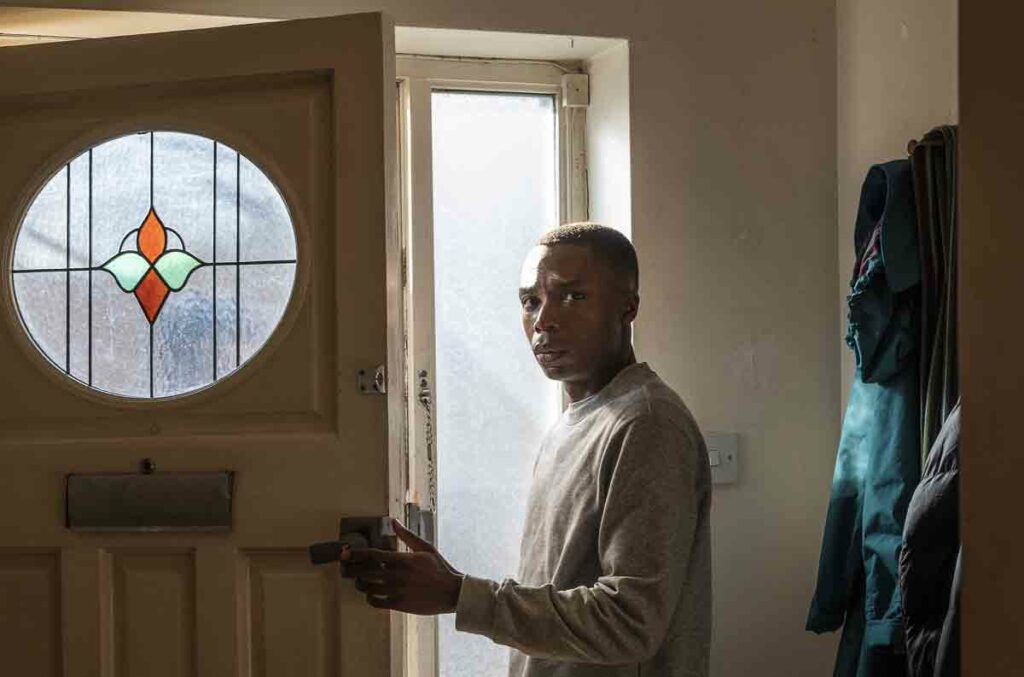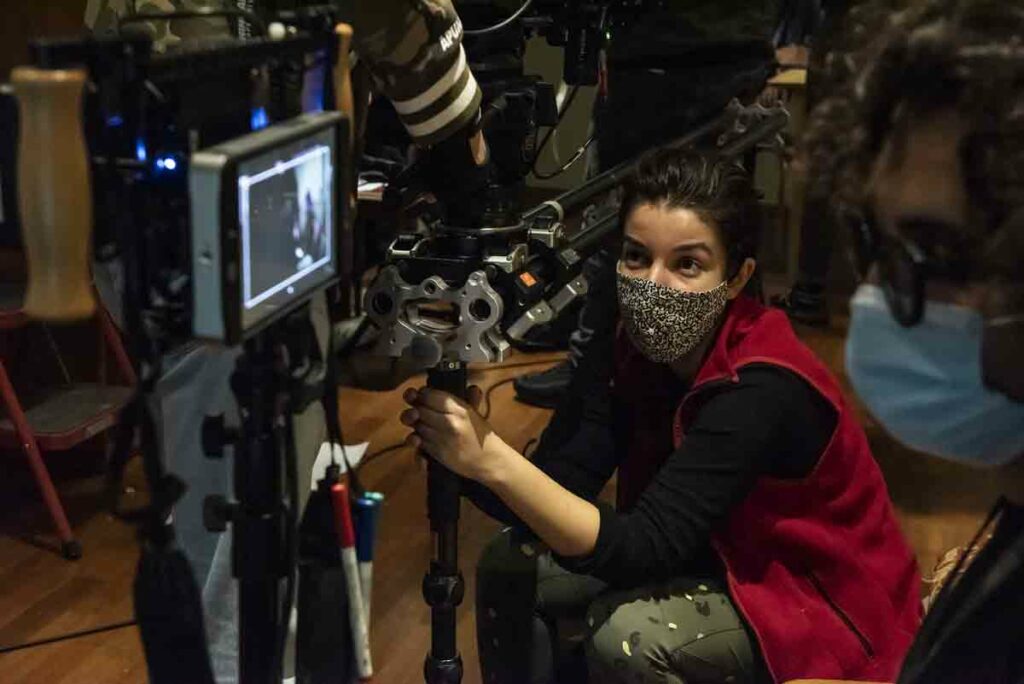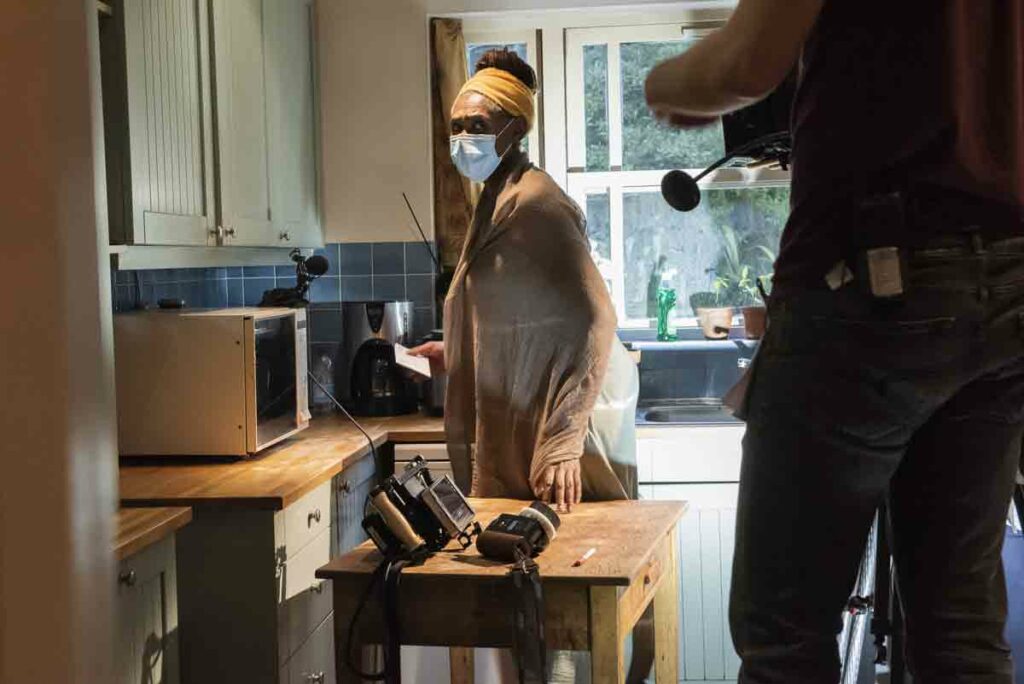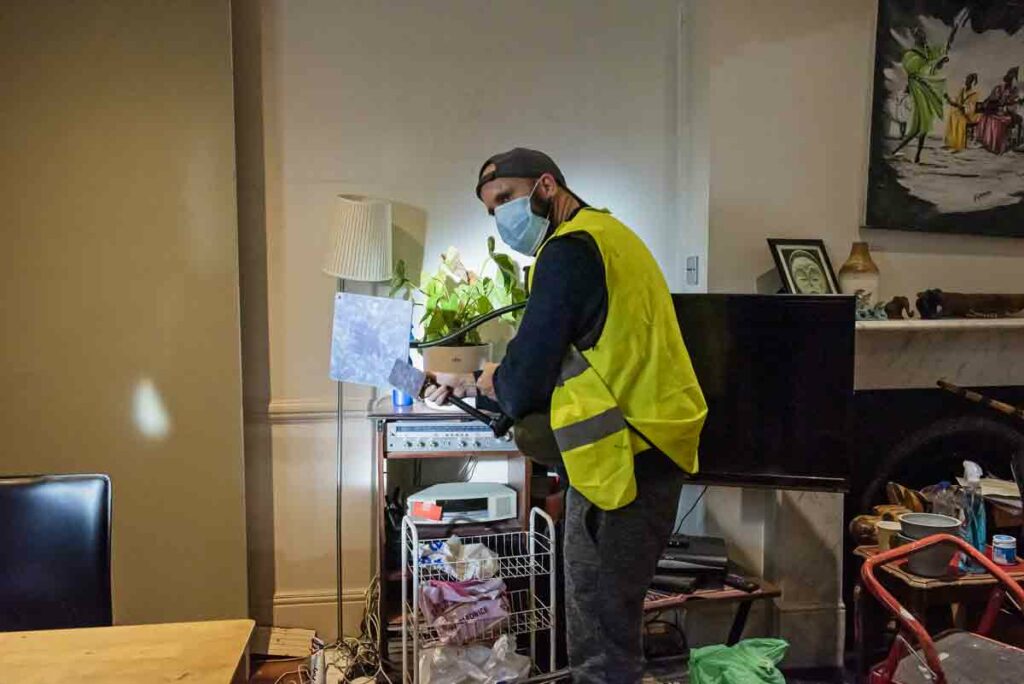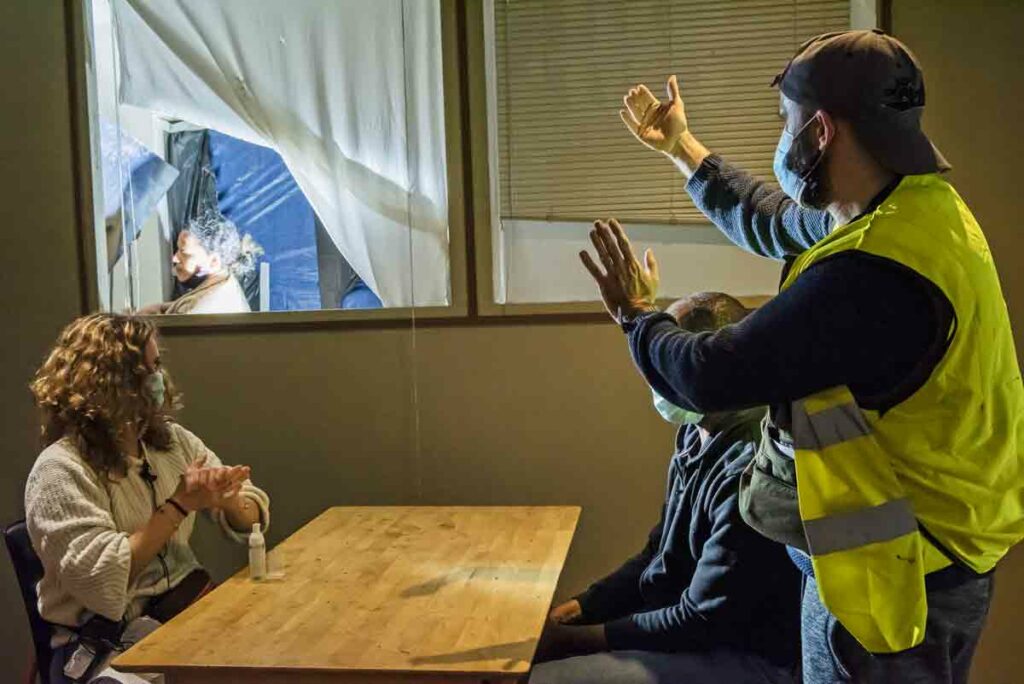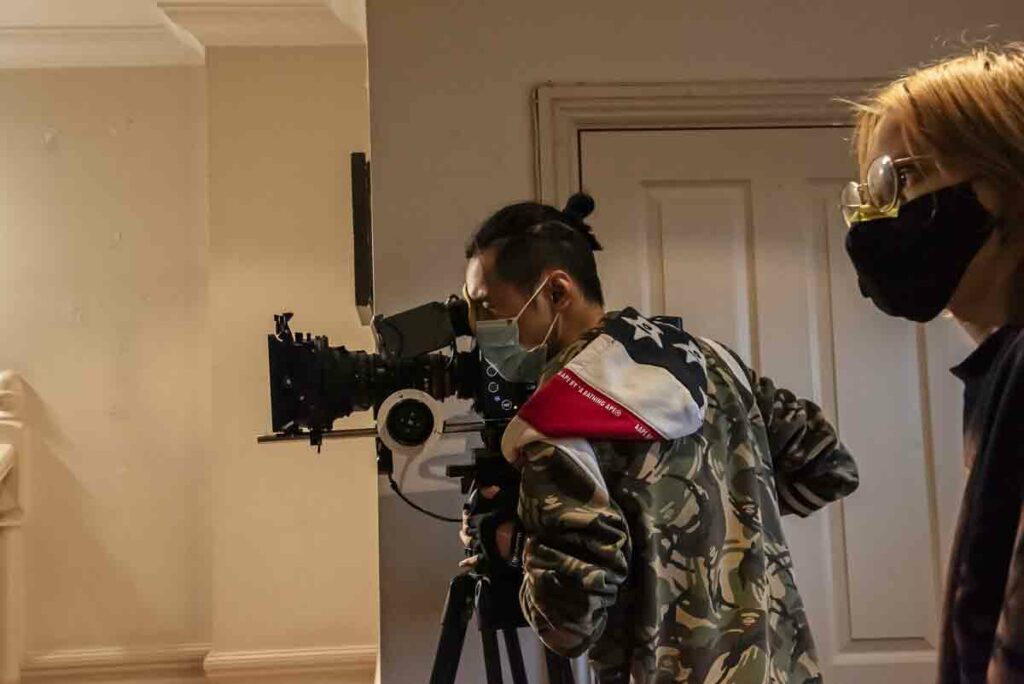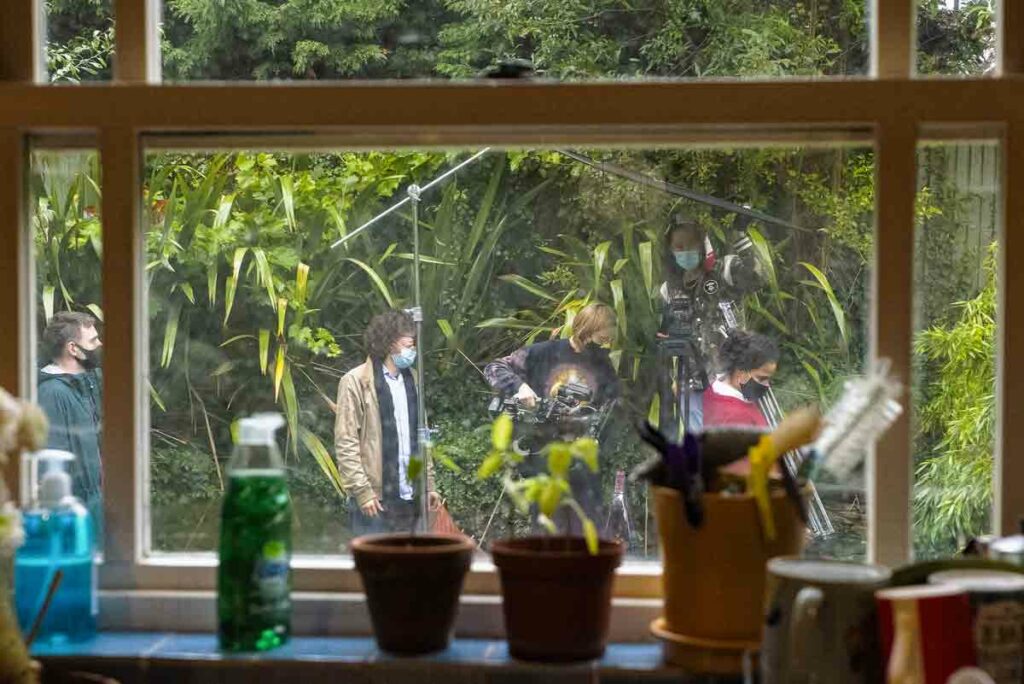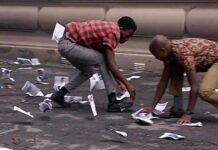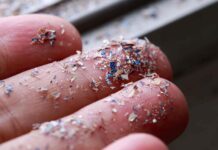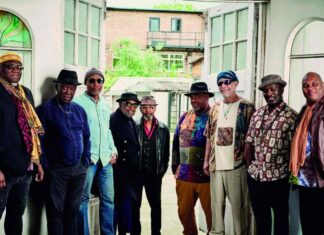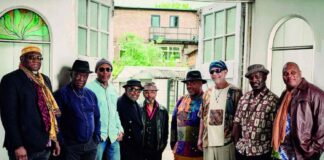Richard Haas meets student film maker Kaleb D’Aguilar who contended with coronavirus to make a short film that highlights the injustices of the Windrush scandal. Images Alessia Gammarota
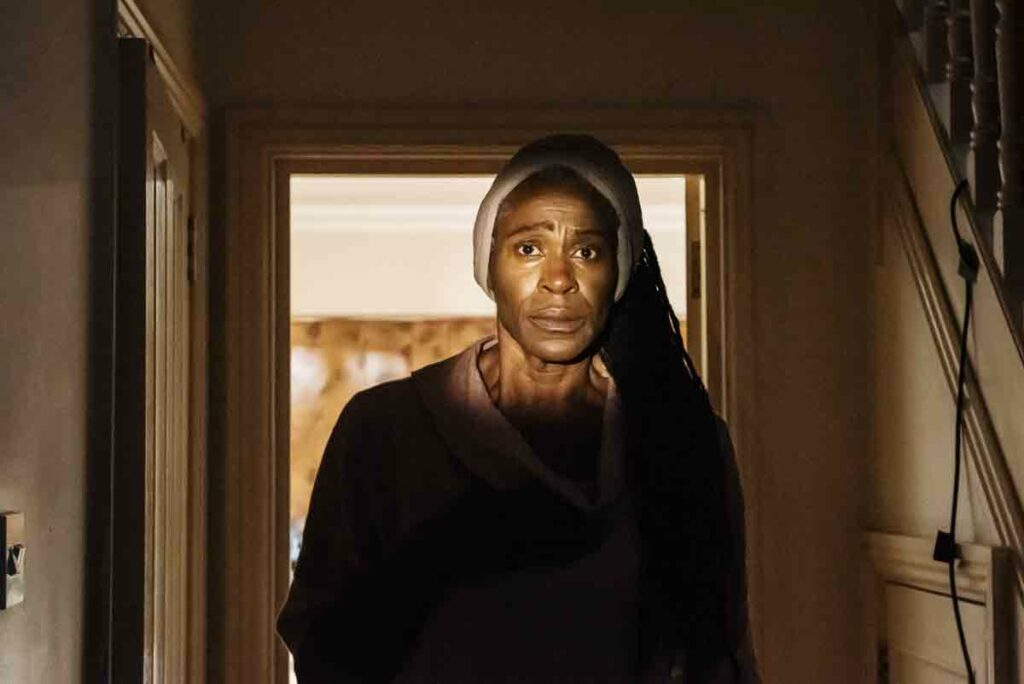
When Kaleb D’Aguilar moved to the UK from Jamaica, he knew little about the Windrush scandal.
“This situation, the atrocity was really shocking to me,” he says. “and to the fact that I didn’t really know much about it. But when I came here and I heard more, I was like, wow, this is really going on.”
When it was time to work on his grad film, D’Aguilar knew he wanted to highlight this injustice.
Together with producer Aliyu Gambo and a team, D’Aguilar began working on a short film called No Entry.
No Entry follows the story of single mother Valerie Powell as she faces deportation. Valerie, who keeps the threat of deportation a secret, also struggles to maintain her relationship with her son Eli.
The story is vaguely inspired by the real case of Windrush scandal victim Paulette Wilson, whose story was highlighted in the Guardian in 2017. Wilson, who died earlier this year, was mistakenly detained multiple times and almost deported, despite being in the UK legally.
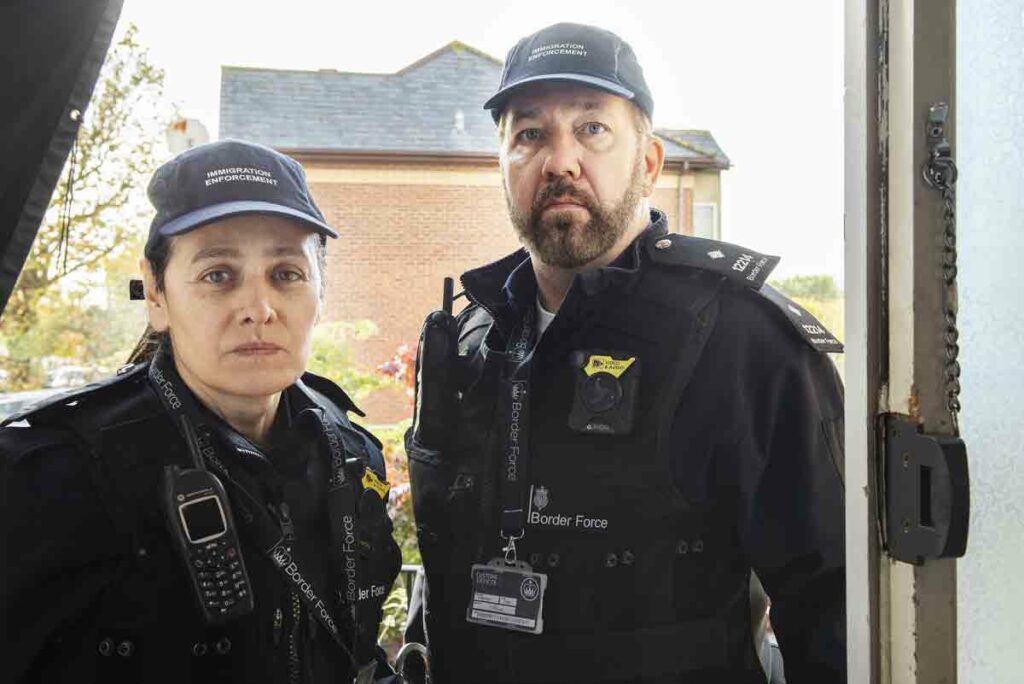
Wilson described her experience as “the worst heartache anyone could go through”. Her story inspired other victims to come forward.
D’Aguilar and his team shot No Entry in October amidst the coronavirus pandemic. Although the team was hoping to shoot in Brixton, they were unable to find a set large enough to comply with social distancing measures.
The four-day shoot instead took place in Hanwell, West London. Gambo says: “We would have loved to shoot somewhere more centrally, like in Brixton, but basically the spaces were too small.
“So, a place where Valerie would live would be like a, I guess, council flat and small house sort of thing. And we really sort of struggled to find that in central London.”
Striving for realism, D’Aguilar visited friends and family in Brixton to take pictures of their homes and send them to production design.
Coronavirus restrictions also forced the team to scale down the set. D’Aguilar says: “We also imagined a lot of scenes happening outside, and because of Covid we couldn’t do that.”
When the shooting finally began, strict Covid guidelines slowed down the process. D’Aguilar says :“I think we fooled ourselves a bit into thinking it would run as fast as a regular film set, but you do have to take a lot more time and energy.
“We had a four-day shoot and by day, I would say at the end of the day two we started to really work out a system that worked for everyone.”
A scene in which Valerie and her son hug did involve breaking social distancing rules. Gambo says: “Before the scene obviously you do a rehearsal without actually touching each other and you’ve got the mask on.
When the director is ready to go, the actors pop the masks off, and they do the scene. Everybody’s holding their breath.”
Despite the difficult of shooting a film during a pandemic, D’Aguilar argues the restrictions made the process of directing easier.
He says: “Film sets have the tendency, especially when there’s 30-something people on a set, to be very chaotic. But we really developed a system and a procedure that made sure that it was smooth.”
D’Aguilar and his team hope to finish No Entry early next year when they plan on submitting it to various film festivals. After which they aim to release the film digitally for everyone to see.
You can stay up to date with process by following the film’s Instagram account.
More information on the film’s Kickstarter page.
